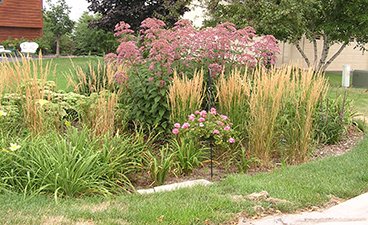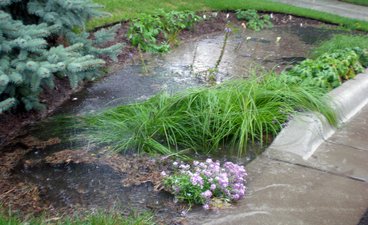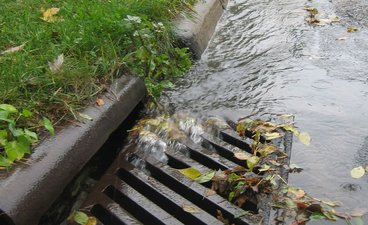The Minnesota Stormwater Seminar Series provides an opportunity to learn about the most recent research, discoveries, and case studies around urban stormwater management specifically for an audience of stormwater practitioners, professionals, and researchers. Seminars include a presentation, panel discussion, and Q&A with participants.
2024 Seminars
- January 18: Capturing and quantifying coarse organic matter in urban stormwater - John Chapman, Univ. of MN
- February 22: Performance of Stormwater Products and Practices: Why it Matters - Seth Brown, NMSA
- March 14: Rethinking Green Stormwater Infrastructure in Place - Ashlynn Stillwell, Univ. of Illinois Urbana-Champaign
- April 18: Plants and vegetation in stormwater practices - John Bly
- May 16: Urban Long Term Ecological Restoration (LTER) Project - Sarah Hobbie
- June 20: Bioretention: Where soil, plants and rainwater have a rootin’ good time! - Shirley Clark, Penn State Harrisburg.
- July - No seminar
- Aug 1 - Does it age like a fine wine or are we having a midlife crisis?: Evaluating older bioretention system performance and soil evolution - Ryan Winston, Ohio State University
- Sept 10 - National Stormwater Policy - Chris Kloss, USEPA
- October 23 (Wednesday)- Aditi Bhaskar, Colorado State University
- November 21 - Lauren McPhillips, Penn State University.
- December 19 - National and Local Stormwater Technical Assistance and Implementation Funding - Travis Ostrom & Robyn DeYoung, USEPA.
Seminars

Does it age like a fine wine or are we having a midlife crisis?: Evaluating older bioretention system performance and soil evolution
Bioretention is among the most frequently implemented green stormwater infrastructure practices. Beyond basic maintenance checks, however, little monitoring is done, despite functioning to clean stormwater for years. This seminar will focus on a field research study aimed at understanding pollutant accumulation and soil development in older bioretention cells.

Bioretention: Where soil, plants and rainwater have a rootin’ good time!
Bioretention is the go-to stormwater control measure in many urban areas. Bioretention success results from the interaction of the loading (flow and pollutants), the treatment media, and the vegetation. Working with the City of Lancaster, PA, Penn State University and Franklin and Marshall College researchers tested infiltration and nutrient removal performance in 100 bioretention systems throughout the city, and did a deep dive into understanding the performance of two systems in Brandon Park where salt loadings in the winter were different due to their proximity to the road.

Trees, ponds and watersheds: Long-term ecological research to understand people and water in cities
The Minneapolis-St. Paul Urban Long Term Ecological Research project (MSP LTER) is an NSF-funded project exploring interactions between people and nature in the Twin Cities to understand how urban ecosystems respond to rapid environmental and social change and inform approaches to addressing environmental inequities. After introducing the broader suite of MSP LTER research questions related to pollinator communities, urban forests, and aquatic ecosystems, this presentation will highlight research focused on urban watersheds and surface waters.
